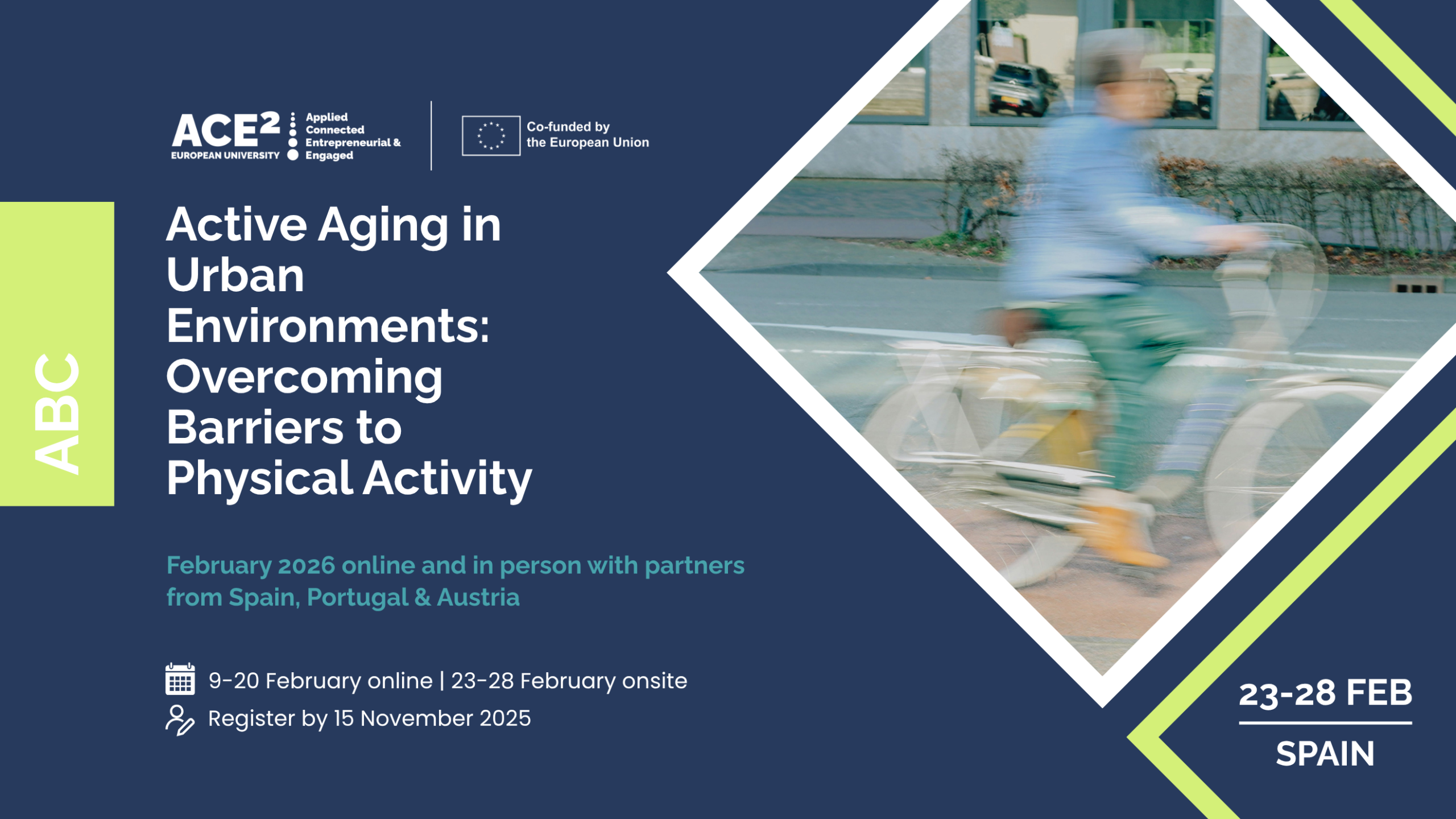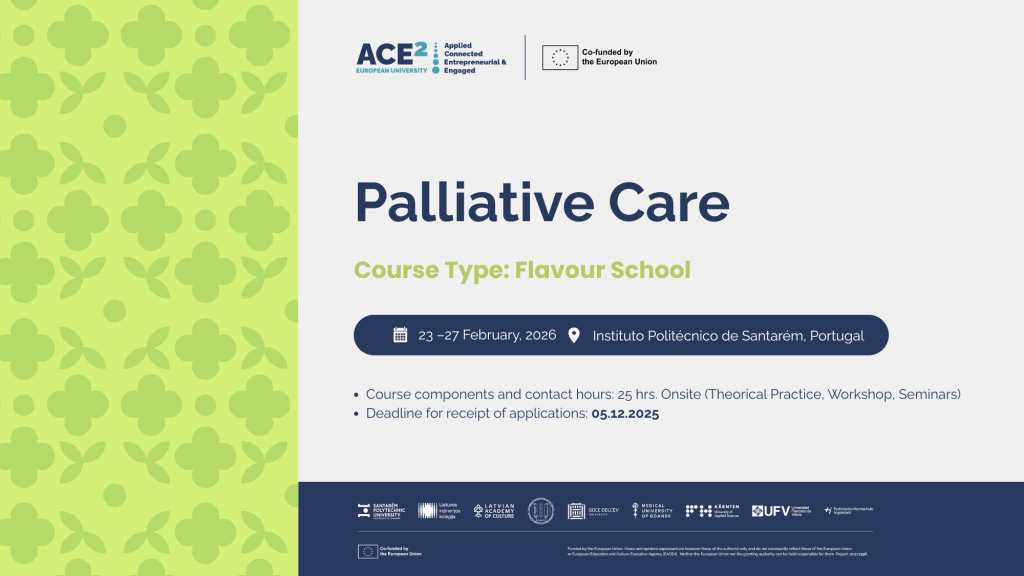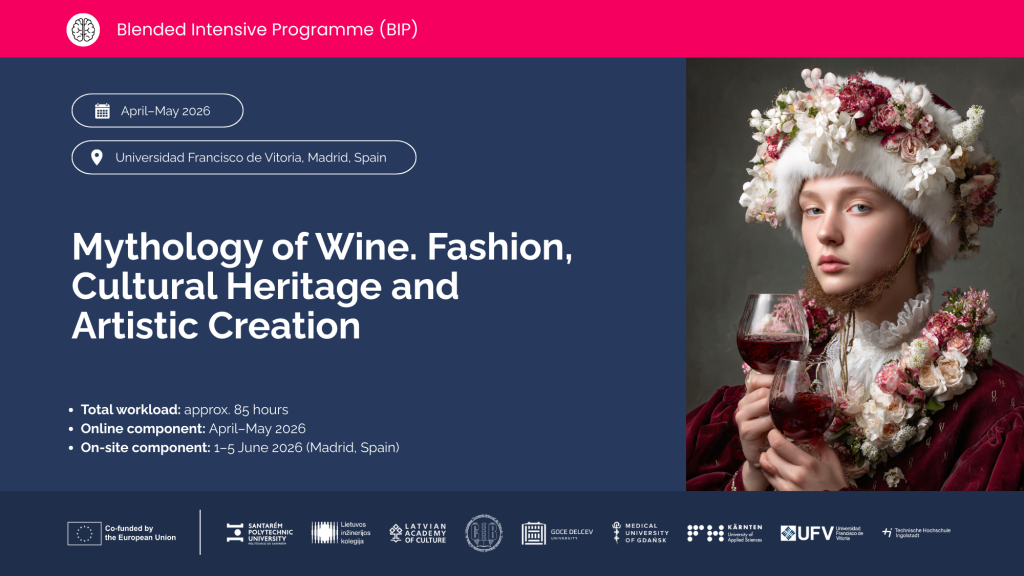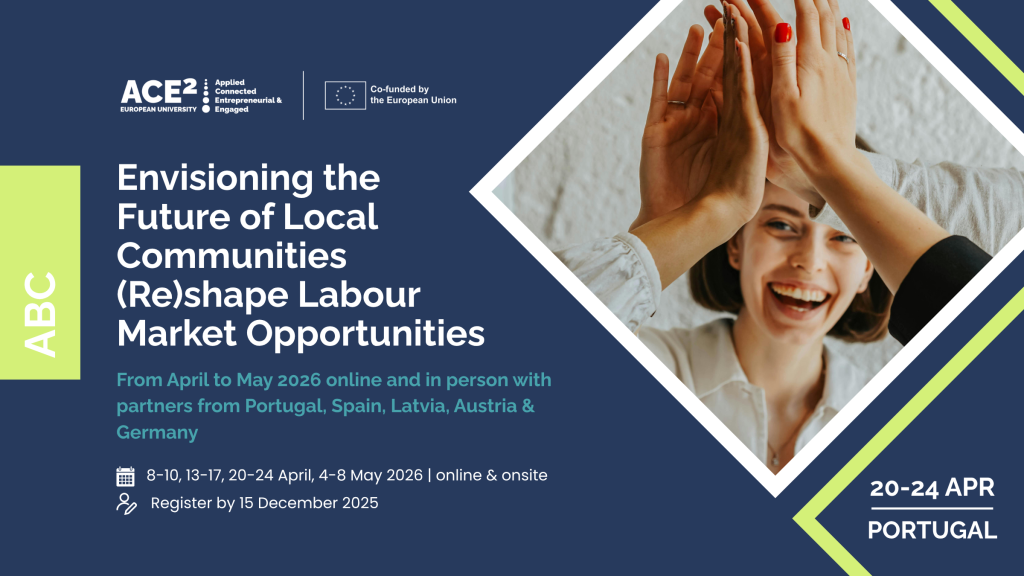
Active Aging in Urban Environments: Overcoming Barriers to Physical Activity

Course Type: Applied Blended Challenge (ABC) Programme
Duration and Timeline:
- Course components and contact hours: 25 hrs synchronous online, 35 hrs onsite , 15 hrs independent and group work
- Online component: 9 – 20 February 2026, Europe/Madrid (UTC+1)
- On-site component: 23 – 28 February 2026 (Madrid, Spain)
Award, Credits and Certification
On successful completion of the course participants will receive 3 ECTS credits and a certificate of attendance
Organised by:
Universidad Francisco de Vitoria (Spain ) Lead and Host Institution
- Jorge Acebes Sánchez (Universidad Francisco de Vitoria)
Santarém Polytechnic University (Portugal)
- Nuno Pimenta
Carinthia University of Applied Sciences (Austria)
- Michael Suppanz
External stakeholders that will be involved in the course:
- Quirón Salud- Olympia
Course Description and Learning Objectives
“This course explores how urban environments shape the health and well-being of older adults, with a special focus on barriers that limit physical activity. Through online preparation and an intensive onsite week in Madrid, students will work in interdisciplinary teams to identify real-world challenges faced by older adults and co-create practical solutions. The programme combines theory, fieldwork, and collaboration with healthcare professionals, making it an excellent opportunity for students interested in active aging, urban health, and applied problem-solving.”
Course Description:
Provide a more structured explanation of the course, dividing it into its main components:
- Online sessions:
Students are introduced to the core concepts of active aging, the role of physical activity in later life, and how urban environments shape health. Online work includes short readings, interactive sessions, group discussions, and preparatory tasks (e.g., stakeholder mapping and barrier-scoping exercises) to prime teams for the onsite challenge
- On-site sessions:
During the mobility week, students immerse in a real-world challenge: identifying barriers to physical activity among older adults in urban settings and co-creating feasible strategies. Activities include stakeholder interviews, field visits, teamwork workshops, and design-thinking labs. By Day 5, teams pitch their solutions to a panel of experts and stakeholders.
- Follow-up / reflection:
Two to three weeks after the onsite week, student teams from each participating country will be invited to present a short project developed in their local context. This follow-up activity allows participants to apply the knowledge and methods acquired during the programme to their own environments, adapting proposed solutions to local needs. In addition, students will receive consolidated feedback from faculty and stakeholders, and complete a reflective activity on skills and competencies developed throughout the course.
Specific learning objectives include:
By the end of the course, students will be able to:
- Identify and analyse key barriers that prevent older adults from engaging in physical activity in urban contexts.
- Apply problem-solving methodologies such as design thinking to develop feasible interventions.
- Collaborate effectively in interdisciplinary and multicultural teams.
- Communicate solutions persuasively through written proposals and oral presentations.
- Reflect critically on the relationship between health, urban environments, and aging.
Which students would find this course useful for them?
This course may be suitable for students from ACE2-EU partner universities enrolled in undergraduate or postgraduate programmes in the following fields:
- Health Sciences (Medicine, Nursing, Physiotherapy, Public Health, Sports Sciences)
- Social Sciences (Psychology, Social Work, Public Policy)
- Urban Studies and Architecture
This course may be suitable for those who have an interest in:
- Active and healthy aging
- Physical activity promotion
- Urban health and social innovation
- Interdisciplinary teamwork and problem-solving
- Recommended Language Level :
- Minimum B2 level of English, as the course requires active participation in discussions, teamwork, and presentations.
Application Process:
Interested applicants should
🔗 Apply here: https://forms.gle/BQKminiRdyhUcKJaA
Deadline for receipt of applications: 15 November 2025
A notification of acceptance to participate will be sent to successful applicants on the day of month year (an acceptance email will be sent by the host institution and will include programme registration details)
Further Information
For any further information or queries related to the course, please contact:
j.acebes.prof@ufv.es



